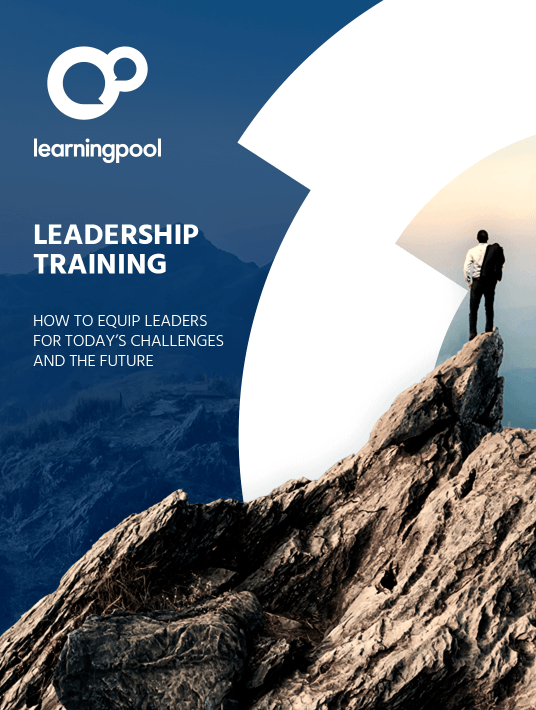From Recruitment To Remote Advocacy: Creating Human Resources Leadership Development Programs
Human Resources is inextricably tied to leadership development. Organizations can openly acknowledge this link by putting in place HR Leadership Development programs to train HR staff in key leadership skills to develop themselves and others.
Human Resources leadership development has two distinct aspects. On the one hand, a key objective for Human Resources is to put in place a leadership development program to ensure healthy, viable leadership for the organization. On the other, HR staff need leadership skills to manage personnel and deliver the resources the organization needs to meet its business challenges.

HR’s Role In Developing Leaders
Perhaps the most important strategic function of HR is to realize the leadership potential and sustain a leadership development program. This means taking steps to ensure you have the right number of well-trained leaders to manage employees across the organization and a system and processes in place to ensure a constant, reliable source of leadership talent. There are a number of ways HR can achieve that:
Implementing Leadership Development Training Programs
Leaders don’t just grow on trees. Potential leaders need to be identified, developed, and trained. HR, along with L&D, should work to establish a training program that not only provides leadership training content but is embedded in the wider, cyclical process of identifying talent and developing that talent into leadership roles in a sustainable way.
Retaining Talent
This is the mainstay of successful leadership development. In order to have the talent to turn into leaders, you need to retain it. HR drives initiatives to make the working environment an attractive place to be and offers benefits and rewards that encourage people not only to stay with the organization but also to actively pursue career opportunities within it.
Creating A Culture Of Opportunities
HR can lead in creating a culture that makes people want to move on up through an organization. This means offering incentives and motivating staff, including promotion opportunities, competitive financial packages, and schemes to reward achievements. Tangible rewards must be supported with development and an employee-centric ethos that promotes clear pathways to career development and supports a growth mindset.
Adopting A Team-Based Approach
HR can equip leaders with the tools to develop and manage their teams. A clear definition of roles and responsibilities backed by active communication and an empathetic leadership style helps build morale and encourages both collaboration and independent initiatives. The importance of teamwork is magnified by the increase in remote working and, as a result, remote management as organizations diversify and expand and as working practices adapt to new working arrangements.
Pursuing Creative Recruitment
As an organization grows and circumstances modify its business objectives, it may be necessary to recruit leaders from outside. This is easier if you already have in place a leadership development program and an environment in which career development and active engagement and the benefits of collaboration are promoted. With these elements in place, your business becomes a magnet for talent.
Developing Leaders In HR
To be at the forefront of promoting and enabling effective leadership, HR staff need to develop their own leadership skills. They require a leadership development program designed for their needs so they can facilitate leadership training for others. Areas that the Human Resources Leadership Development program should cover include:
Opening Communication Channels
By its very nature HR has to deal with people at all levels across an organization. Attuning communication to an audience is a key HR leadership skill. Promoting openness and being willing to actively listen to others inspires trust and makes others more receptive to what you have to say. HR leaders need to use their communication skills to help build channels between leaders to avoid creating personal fiefdoms amongst managers that stifle teamwork and are obstacles to efficiency.
Using Motivational Skills
HR can be a great vehicle to inspire and motivate others. HR sets the tone and helps to create an inclusive culture in the workplace. This leadership role for HR is vital in creating an attractive, engaging, fulfilling environment in which people can work. That culture supports and enables the development of talent that ultimately services the leadership needs of the entire organization.
Displaying Emotional Intelligence
Emotional intelligence is essentially the ‘human’ part of Human Resources. The ability to understand, empathize and respond to others is vital especially when people are in remote locations, have different geographies, and have diverse backgrounds and experiences. How you treat yourself is as important as how you treat others. The self-awareness you develop with emotional intelligence puts you in a better place to manage relationships with your colleagues.
Diffusing Conflict
With so many days lost to stress and its negative impact on productivity, conflict in the workplace is one of HR’s greatest and most constant challenges. In your capacity as an HR leader, you not only need to address individual examples of conflict but to inform other leaders how to manage conflict in their teams by facilitating dialogue, showing empathy, and employing active listening and motivational techniques.
Employing Organizational Skills
HR’s remit is so wide and its connection with an organization so deep that no HR leader can flourish without being in command of organizational details. This means organizing your own work as well as organizing that of others. But one of the key elements of an organization is empowering more people to self-organize. Promoting the need to take responsibility for their own work and development not only relieves stress on HR but also leads to greater independence and self-confidence delivering a boost to overall productivity.
Empowering Others
Empowering others through effective leadership is a way of reducing the need for hands-on leadership and micromanagement and making leadership more effective by allowing HR leaders to concentrate on broader initiatives that will benefit the organization overall. Using emotional intelligence and the techniques to manage conflict you can raise the awareness of others to take much greater control of their work, their learning, and their development. This simultaneously builds trust, confidence, and self-belief and instills the ability to self-motivate that in turn leads to a healthier, more productive, and engaged workforce.
Providing Moral Leadership
HR is typically both in the fray and above it. How HR leaders project themselves and the leadership style they adopt are critical to the way they’re regarded by the rest of the organization. Ideally, they should be a barometer of the climate, responding innovatively to the challenges faced by management, employees, and the business at large. In their actions, HR leaders need to be above reproach and ethically sound so that they can be honest brokers in any resolution. People should be able to turn to HR leaders secure in the knowledge that they will receive a fair hearing and expect not only decisive but also professional leadership in return.
The Importance Of Human Resources Leadership Development
Human Resources plays a pivotal role in leadership development. HR is both the initiator and a key beneficiary of leadership development. A dedicated Leadership Development program provides the basis for producing effective HR leaders. So, as you develop your leadership training be sure it covers specialized HR leadership skills and that any leadership development process starts with HR.
Once you make Human Resources Leadership Development a priority you will see the benefits in more effective leadership development and better staff retention and morale. And you will be creating an environment that brings the best out of your human resources.
Download the eBook Leadership Training: How To Equip Leaders For Today's Challenges And The Future to prepare your leadership team for what's to come and build a successful culture of learning.








